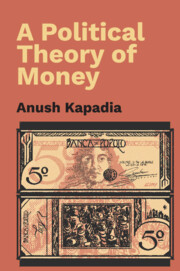9 - A World without: World Money
Published online by Cambridge University Press: 14 September 2023
Summary
Instead of the Federal Open-Market Committee … we need an Atlantic Open- Market Committee.
—Kindleberger (2000 [1967])The US credit system saw banks break out of public-minded control mechanisms; the inherent instability of credit was thereby amplified and crisis ensued. Control mechanisms have evolved precisely to configure the collective's exposure to the inherent instability of the credit system. Without them, the system is incomplete, unstable and tends to be undemocratic.
Yet at the global level, we have precisely such an incomplete, public–private-like hybrid system but without the attendant public element. The global system is therefore even more subject to capture and instability. The US’ national-economy–central-bank complex acts as a ‘private bank’ in the world economy but without a corresponding global central bank given the absence of a world state. There are therefore no global mechanisms to control global credit. Central banks issuing their own liabilities are to the global economy what Citibank issuing its own money would be to a national economy. The last attempt to erect such a private money system detached from central-bank control, namely American shadow banking, ended in disaster. Yet this is the very nature of the global credit system.
Non-state global institutions, either global markets or the IMF, fail at issuing world money because they lack robust mutualisation at scale. We therefore have a dilemma: if a sovereign provides world money, it is difficult to discipline, seeding global risk. If a non-sovereign provides world money, it will not be credible: only (some) sovereigns can do this. Following Charles Kindleberger, we argue that the international community needs to invent forms of global, non-state political mutualisation that could underwrite the rough equivalent of domestic control mechanisms, contain the ‘private bank’ that is the American Fed and contain the global system's contradictions. Permanent swap lines between core central banks already point in that direction, but they are mere fire engines at this point, lacking countercyclical pressure on the Fed.
How do we provide the global public good of monetary governance without a world state? There is no ‘world money’, no single instrument whose reserve asset is the entire world economy because without a world state, there is no fiscal means to tap into the entire world economy in one go. We have instead a small set of national monies tethered to substantial national economies functioning as global means of payment.
- Type
- Chapter
- Information
- A Political Theory of Money , pp. 172 - 187Publisher: Cambridge University PressPrint publication year: 2024



